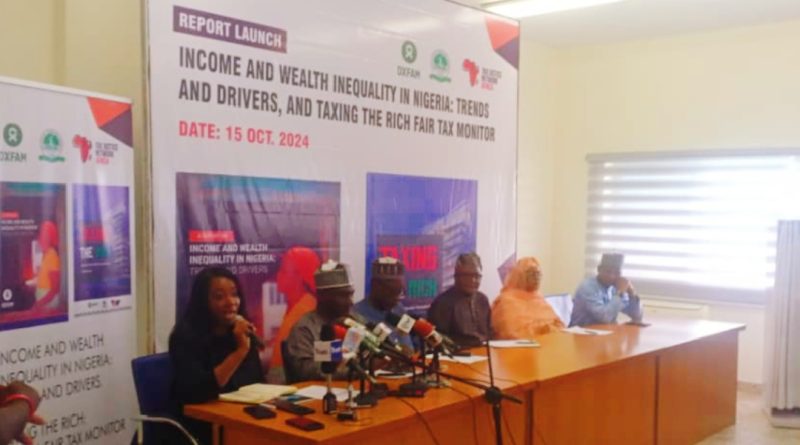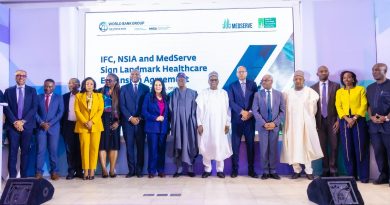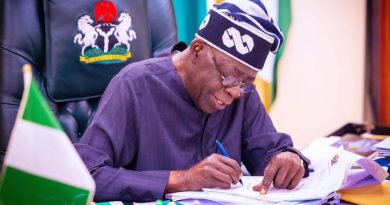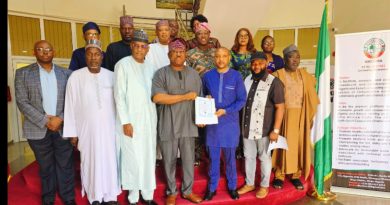Oxfam, CISLAC Expose Nigeria’s Wealth Inequality …99% of Wealthiest Evade Taxes, Millions Go Hungry
Maryam Aminu
Nigeria is on the brink of a social crisis, as Oxfam, in collaboration with the Civil Society Legislative Advocacy Centre (CISLAC), has uncovered shocking levels of tax evasion among the country’s wealthiest individuals.
At a press conference held today in Abuja, during the launch of the reports Income and Wealth Inequality in Nigeria: Trends and Drivers and Taxing the Rich: Fair Tax Monitor, the organizations revealed that over 99% of the richest Nigerians are evading taxes, while millions of citizens struggle with poverty and hunger.
Despite being Africa’s fourth-largest economy, the benefits of Nigeria’s economic growth have been disproportionately concentrated in the hands of a few elites.
The reports, launched at the Shehu Musa Yar’Adua Centre, paint a dire picture: over 133 million Nigerians, almost 70% of the population, are living in poverty, with women and girls facing the brunt of the crisis.
The findings revealed that out of 115,000 high-net-worth individuals those earning at least ₦40 million annually only 40 are tax compliant. This represents a mere 0.035% compliance rate, depriving Nigeria of essential revenues needed to address the widening economic and social divide.
John Makina, Oxfam’s Country Director in Nigeria, issued a stark warning: “Nigeria’s super-rich continue to accumulate wealth unchecked, while millions of people can barely afford a meal.
The lack of transparency and the complexity in tax laws allow this inequality to flourish, depriving the country of vital funds needed for social protection and poverty alleviation.”
The reports further show that Nigeria’s wealth Gini coefficient stands at 35.1, making it the 11th most unequal country in West Africa.
As the wealth of the elite continues to grow, over 20 million children remain out of school, and the national poverty rate continues to rise, leaving millions hungry and desperate.
The reports call for the urgent implementation of progressive taxation, which could generate $7.5 billion annually. This amount would be sufficient to double the government’s current health budget or significantly reduce out-of-pocket healthcare expenditures for millions of Nigerians.
Auwal Ibrahim Musa Rafsanjani, Executive Director of CISLAC, emphasized the importance of civil society in driving these reforms: “We must work together to hold the government accountable and ensure that the wealthy contribute their fair share.
He disclosed that Nigeria faces an annual financing shortfall of over $10 billion to meet its Sustainable Development Goals (SDGs), yet the richest among us evade taxes, eroding our fiscal capacity.
Rafsanjani stressed that with the socioeconomic situation becoming increasingly dire, there is no room for delay. Nigeria’s tax system must be transformed into a powerful tool for equitable development.
“The time for action is now, and the decisions made today will determine the future course of the country’s fiscal health and development,” Rafsanjani added.
Hamzat Lawal, Chief Executive of Connected Development (CODE), highlighted the plight of young people in Nigeria: “Young people are bearing the brunt of poor governance. If citizens cannot afford basic needs, the situation becomes unsustainable. We’ve seen protests before, and without reform, the consequences could be dire.”
He stressed that income levels are stagnant, even as the cost of living continues to rise, pushing many Nigerians into deeper economic hardship.
Lawal also criticized the current government, expressing concerns about the erosion of democratic dividends: “Politics is about public service. Why is this government choking us when we are supposed to be enjoying the benefits of democracy?”
Lawal reaffirmed his belief in solidarity, calling on citizens to unite for reforms that will bring about a better future: “I believe in a solidarity that will lead to meaningful reform,” he added.
Henry Ushie, Oxfam’s Accountable Governance Programme Manager and co-author of the report, echoed the call for reform: “Nigeria’s growing inequality is not just an economic issue but a social crisis that threatens long-term stability. Immediate action is needed to reverse the trend. Reforming the tax system and increasing social spending are key to addressing this divide.”
The reports also shed light on Nigeria’s looming fiscal crisis, with the national debt soaring and the poorest states, such as Sokoto, facing poverty rates as high as 87%. Meanwhile, wealthier states like Lagos have a poverty rate of just 4.5%. The growing debt burden is diverting resources away from crucial public services, making poverty alleviation more difficult.
Oxfam and CISLAC put forth several urgent recommendations, including the implementation of a Progressive Wealth Tax, Increased Social Spending, Human Capital Investment, Agricultural and Land Reform, and Stronger Tax Enforcement.
Nigeria’s growing inequality has reached a breaking point, and without immediate reforms, the country risks a devastating social explosion.
Oxfam, the Tax Justice Network Africa, CISLAC, CODE, and other civil society organizations are calling for urgent action to restructure the tax system, increase social investment, and hold the wealthy accountable. If these measures are not taken, the consequences for Nigeria’s future could be catastrophic.




